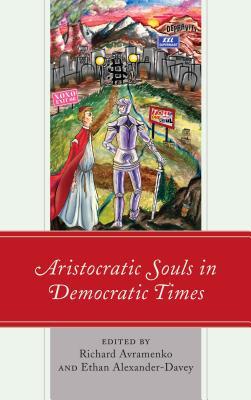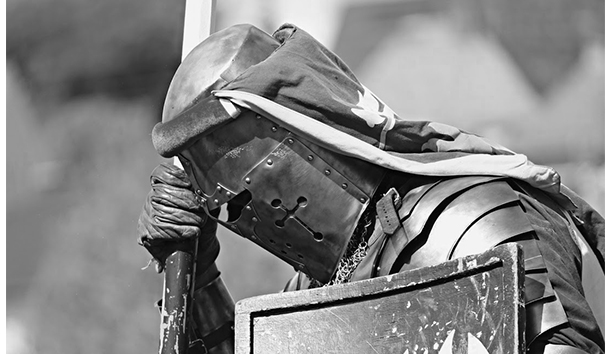In an age of anti-elite anger, it might seem otiose to publish an academic analysis of aristocratic ideas in Western thought. But as the post-1945 order rattles itself to pieces, it is time to look past its bankrupted beliefs and discredited leaders for other guiding principles—principles based on history instead of ill-defined and naive hopes, and reality rather than sentiment. Elites will always be with us, because people differ by inclination as well as inheritance, while a greater familiarity with aristocratic experience may afford object lessons for today’s experiments with democracy. Traditionalists often eschew academia, but the editors of this volume have somehow raised a small regiment to launch a hussar charge against today’s pieties, offering all kinds of insights into now almost-forgotten episodes, and almost-unimaginable ideas.
Aristocracy is obviously incompatible with what René Guénon (omitted from this collection, perhaps wisely) called The Reign of Quantity—our ostentatious equality, novelty, relativity, and restlessness. But today’s social superiors protest their social consciences too much; we also suspect they are not really superior. Resentments always ate at aristocratic orders, but were often defanged by habit, praxis, and religion, and by virtuous nobles. Aristocrats, Aristotle had opined, should be “great-souled,” sternly conscious of their reputations and responsibilities, and benignly proprietorial of their estates and families—and indeed some were. In consequence, aristocrats were long (if grudgingly) accepted as “natural” leaders—chivalric, discriminating, lucky by Divine design, poised, refined, restrained, trustworthy. Royal patents of nobility were traditionally regarded as acknowledgements of preexisting paramountcy.
The rising men of the Middle Ages never gained parity of esteem with nobles who may have been worse off financially, but retained enviable, unquantifiable assets. Merchants and moneylenders were ennobled as payments for services rendered, rather than to certify intrinsic worth. As Europe’s trading towns bellied with huge new townhouses, there remained a division between new and old money—the self-made chafed against social slights, while “county” families counted their heraldic quarterings to console themselves for declining economic might and a slowly slackening grip on power. Occasionally, nobles found themselves in strange sympathy with those at the base of society’s pyramid. Noblesse oblige and reciprocal obligations sometimes seemed to bondsmen preferable to exploitative and “vulgar” middling men, who wanted to take people from communities and fields and put them into cities and factories.
Andrew Fear examines Augustus’ legislative coup of 23 b.c., when an enfeebled Senate ended the grave Republic and ushered in arbitrary autocracy. Tacitus blasts the principate’s first century, with its “brutal orders, treacherous friendships, the destruction of the innocent”—tyranny facilitated by the decadence of senators, so proverbial that Augustus’ successor Tiberius reportedly muttered “men fit for slavery” after each visit to the Senate. Tacitus excoriates old families’ loss of will and lack of solidarity, with exceptions like Thrasea, who said of Nero, he “can kill me, but he cannot harm me.” The aristocratic movers of the plot in a.d. 65 against Nero abased themselves when caught, contrasting cravenly with the female ex-slave Epicharis, who kept faith under torture. A leitmotif of this collection is aristocracy as a bulwark of liberty against both monarchy and mobocracy.
Some aristocrats almost prided themselves on impracticality, drawing snobbish distinctions between concepts like glory, reputation, and credit. But in 16th-century France, Brian Sandberg shows, such distinctions were rarer, with blue bloods rarely too proud to utilize complex financial mechanisms to raise money for “glorious” objectives. This is a useful counterweight to the stereotypical view of noble finances, which focuses prissily on conspicuous consumption—the luxuries reserved to nobles, now called “bling,” as if there were a qualitative kinship between chateaux and McMansions, or former kings and present Kardashians. Catholics and Calvinists financed themselves in similar ways, which weakens Weber’s thesis about capitalism’s Protestantism.
Whatever glory, reputation, or credit still accrued to the French aristocracy in 1789, it was outweighed by arrogance, frigid Encyclopédiste analyses, radical rodomontade, and hard times, giving rise to bitter myths like Marie Antoinette’s “Let them eat cake.” Henri de Boulainvilliers (1658-1722) was an exception to his age’s gathering trahison des clercs, arguing for the prescriptive rights of lineage in an age starting to reify Reason (for which he is now charged with racism, when he is remembered at all). But Boulainvilliers was also rather typical of his class, searching the past chiefly for guides to the future. Echoing Tacitus, he viewed the Second Estate as organic, the guarantor of liberties and benign custodian of the commonwealth. Jay M. Smith argues he went too far in this, and that his “treacherously multivalent” writings inadvertently laid by fuel for future fires.
Louis de Bonald (1754-1840) was more conservatively consistent, writer Jerry Salyer claims. But Louis added bravery, scientific open-mindedness, anticapitalism, and social concern to his authoritarianism. He was simultaneously a proto-sociologist and one of the great conservative minds of his period, who wrote of the catch-cry “Liberty, equality, fraternity or death!” that “Liberty ended by covering France with prisons, equality by multiplying titles and decorations, and fraternity by dividing us. Death alone prevailed.” He loathed the trivialization of France under the democratical dispensation, with its “childish people” only fit for “lackeys’ antics, harlequin farces, and ghost and crime stories.” His theory of the Three Estates mirrored his Trinitarianism, and his detestation of divorce his repudiation of all revolutions, whether democratic, domestic, or Industrial. “Love,” he wrote, “is the principle of power”; affection and history should bind a people to one another and to their country.
Meanwhile in England, Burke was sounding similar themes. Nobles, he told the Duke of Richmond, “are the great Oaks that shade a country and perpetuate your benefits from Generation to Generation,” his bosky metaphor conjuring reposeful English parkland with gnarled trees and great house, its proprietors rooted and fruitful, connecting the Whiggish “Ancient Constitution” with the future. If the “age of chivalry” was not to end with tumbrils, it was vastly important for the sapling “spirit of a gentleman” to be replanted perennially, through good example and cultural-political engagement. Some sad echo of this lingers in corners in today’s House of Lords, where the 92 hereditary peers who survived New Labour’s purge in 1999 jostle for red-leather room with “more representative” but actually often arbitrarily appointed legislators, whose contributions to debates in the upper chamber are at least equally uneven.
Instinctual aristocracy was too etiolated for even Burke to resuscitate. Later theorists of inequality would be visionaries rather than conservatives, most notably Nietzsche, or metaphysicians like Ortega y Gasset, or the conspiratorially minded 8th Duke of Northumberland. One of the most “impractical” was Konstantin Leontiev (1831-91), who argued that aesthetic considerations should take precedence over all others. For him, “the heroic, the picturesque, the tragic, the demonic” were infinitely preferable to the “quiet decline of all feelings”; he even thought the telephone more dangerous than military technology because, while weapons kill many people, telephones (and railways) kill “organic life.” Ethan Alexander-Davey acknowledges that Leontiev “cannot offer a programme that men of the twenty-first century could embrace.” Even so, this remote Russian raises an essential question: If not aesthetics, what? Humanitarianism, meritocracy, “pure morality,” and utilitarianism seem equally insubstantial, and are arguably less interesting.
Even in America, the cleavages within the Old World linger. Cavaliers carried chivalric ideas and old grievances to the colonies, and the Founding Fathers channelled Roman Republicans in seeking “natural aristocracies.” England’s “birthright” of liberty became an all-American assumption; civic engagement, paternalistic politics, the stewardship of land, and self-discipline were inherently noble things. Even antiquarian melancholia crossed the Atlantic to the land of optimism: John Randolph, for instance, bemoaned the “dismantled country houses . . . [and the] desolate and ruinous churches” of post-1812 Virginia. Tocqueville worried about the possibilities for the future of American stability without the European “science of etiquette,” which had bound families and made servants accept their subordinate position. As late as mid-20th century, Richard Weaver was having “visions of order,” seeing shades of the Ancien Régime in the gray uniforms of the Lost Cause.
“Ideas have consequences,” as we know; and Richard Avramenko feels obliged to distance himself from some contributors’ logical conclusions: “One must not infer . . . that we advocate for inequality.” Perhaps not, but then we already have it. In a world where everyone now is a rank outsider, all we can hope for may be a less onerous inequality, and a less unnatural elite.

[Aristocratic Souls in Democratic Times, edited by Richard Avramenko and Ethan Alexander-Davey (Lanham, MD: Lexington Books) 350 pp., $120.00]

Leave a Reply